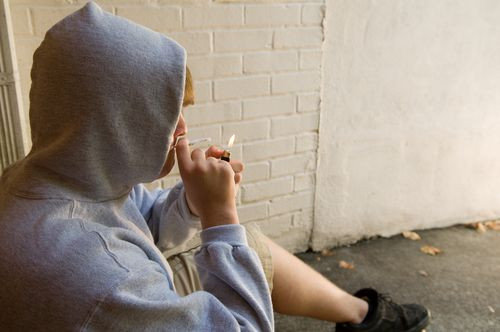Will Regular Marijuana Use Turn Teen Brains To Mush? Yes, Say Psychologists

Several studies dedicated to the effect of marijuana on our brains have shown a relation between drug use and the development of psychosis in later life. Psychologists discussing the public health implications of marijuana legalization have endorsed these earlier findings by stating that frequent marijuana usw can significantly impact the brains of young adults leading to decreased cognition, poor attention and memory, and decreased IQ. The discussions were held at the American Psychological Association's 122nd Annual Convention.
"It needs to be emphasized that regular cannabis use, which we consider once a week, is not safe and may result in addiction and neurocognitive damage, especially in youth," said Krista Lisdahl, PhD, director of the brain imaging and neuropsychology lab at University of Wisconsin-Milwaukee, in a statement.
People who smoke pot will relate to feeling euphoria, or "high." Other effects include heightened sensory perceptions, altered perceptions, and increased appetite. The number of teens and young adults smoking marijuana has increased significantly since the 1990s. A 2012 study showed that 6.5 percent of high school seniors reported smoking marijuana daily, up from 2.4 percent in 1993. Additionally, 31 percent of young adults between the ages of 18 to 25 reported using marijuana in the last month.
Lisdahl referred to a 2012 longitudinal study of 1,037 participants who were followed from birth to age 38. This study showed that marijuana addiction could decrease IQ by an average of six points.
She also pointed out that brain imaging studies of regular marijuana users have shown significant changes in their brain structure, particularly among adolescents. Abnormalities have been found in the brain's gray matter of 16- to 19-year-olds who increased their marijuana use in the past year. The grey matter is associated with intelligence. These findings remained even after researchers controlled for major medical conditions, prenatal drug exposure, developmental delays, and learning disabilities, she added.
"When considering legalization, policymakers need to address ways to prevent easy access to marijuana and provide additional treatment funding for adolescent and young adult users," she said.
The psychologists also discussed about THC or tetrahydrocannabinol, the major psychoactive chemical in marijuana that causes the mood altering effects. Lisdahl proposed that policymakers should consider lowering levels of THC in marijuana, in order to reduce potential neurocognitive effects.
Alan Budney of Dartmouth College said that some legalized forms of marijuana have higher levels of THC than other strains. These days, more potent parts of the marijuana plant are being used by young adults, which increase risk of acute and future problems with depression, anxiety and psychosis.
"Recent studies suggest that this relationship between marijuana and mental illness may be moderated by how often marijuana is used and potency of the substance," Budney said. "Unfortunately, much of what we know from earlier research is based on smoking marijuana with much lower doses of THC than are commonly used today."
While treatments for marijuana addiction among adolescents, such as brief school interventions and outpatient counseling, may be effective, more research is needed to develop more effective strategies and interventions, he added.
Bettina Friese, from the Pacific Institute for Research and Evaluation in California, also highlighted the fact that legal use of medical marijuana has given a free rein to adolescents who often misuse it. She presented results from a 2013 study of 17,482 teenagers in Montana, which found marijuana use among teenagers was higher in counties where larger numbers of people voted to legalize medical marijuana in 2004.
Teens in these counties could not properly gauge the effects of marijuana and perceived it to be less risky. The research findings suggest that a more tolerant attitude toward medical marijuana and focus on adult use may have a greater effect on marijuana use among teens than the actual number of medical marijuana licenses available, according to Friese.
Source: Lisdahl K, Budney A, Friese B. Considering Cannabis: Potential Public Health Implications of Marijuana Legalization, American Psychological Association's 122nd Annual Convention, 2014.



























